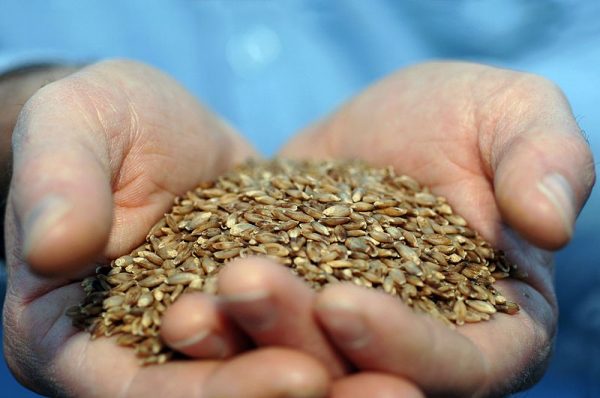Pacific Money | Economy | Oceania
Australia suspended a complaint to the World Trade Organization in the Albanese government’s latest step toward repairing relations with Beijing.
Australia suspended a complaint to the World Trade Organization in a bid to reopen the Chinese market to Australian barley for the first time in three years in the new government’s latest step toward repairing relations with Beijing.
China effectively closed its doors to Australian barley in May 2020 by imposing an 80 percent tariff after the previous Australian government angered Beijing by calling for an independent inquiry into the origins of and responses to the COVID-19 pandemic. The previous conservative government responded by challenging the tariff in the Geneva-based trade body.
On Tuesday, Foreign Minister Penny Wong said her center-left Labor Party government, which was elected in May 2022, had reached an agreement with China that “creates a pathway for the resolution of the dispute over Australian barley.”
China had agreed to review its duties on the grain over three or four months, she said, and Australia will temporarily suspend the WTO dispute during that review period.
“Obviously, if the duty is not lifted at the end of the review period, we’ll resume our dispute in the WTO,” Wong said. She said the Chinese review offered a “significantly shorter time frame” to resolve the dispute than the WTO offered.
The Chinese Embassy in Australia did not immediately respond to a request for comment Tuesday.
The Australian government revealed the agreement a day after China’s Foreign Ministry confirmed that Chinese Vice Foreign Minister Ma Zhaoxu will visit Australia and Fiji this week.
Ma plans to hold a new round of political consultations with Australian officials, Chinese Foreign Ministry spokesperson Wang Wenbin said Monday during a regular media briefing.
Official and unofficial trade barriers are costing Australian exporters an estimated $14 billion a year in products including beef, seafood, and wood. Trade Minister Don Farrell said Australia hoped the review would become a template for resolving other trade disputes with China, particularly over wine. While barley growers have found other markets, Australian wine producers have struggled to find alternative buyers after China imposed trade barriers in late 2020.
Australia has denied China’s claims that it was subsidizing wine to export it at artificially low prices.
Grain Producers Australia, which represents barley exporters, welcomed the new agreement.
“This process to reach a resolution would be significantly shorter than if the WTO process continued,” Grain Producers Australian chair Barry Large said in a statement.
“We welcome the Labor government’s constructive dialogue and positive progress towards stabilizing the relationship with China, and creating this process and opportunity to recommence the barley trade,” Large said.
In February, Australian and Chinese trade ministers held their first bilateral meeting since 2019, showing signs of improved relations since the previous government was voted out after nine years in power.
During the online exchange, Farrell accepted his Chinese counterpart Wang Wentao’s invitation to visit China. A date has yet to be set.
In December, Wong became the first Australian foreign minister to visit China in four years. Prime Minister Anthony Albanese raised his concerns about trade in November when he took part in the first formal bilateral meeting with Chinese President Xi Jinping by an Australian government leader since 2016.
China recently lifted trade restrictions on Australian coal that were first imposed in late 2020.


